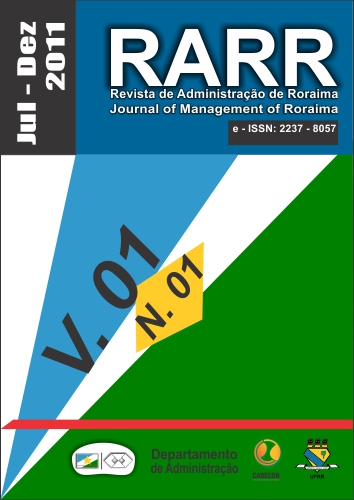Parallel exchange in the Brazil / Venezuela
DOI:
https://doi.org/10.18227/rarr.v1i1.588Keywords:
Foreign exchange market, Parallel exchange, Foreign exchange operations, Convertibility, Central Bank of Brazil.Abstract
The objective of this study was to examine the issue of parallel exchange comparing the theory with the situation experienced in reality in which comprises the operations performed in the municipality of Pacaraima seeking to know: What are the contributions that the installation of a financial institution authorized to perform foreign exchange transactions would bring to the municipality of? Foreign exchange transactions have become relevant in that it is for negotiations with foreign countries, because the levels of commercial transactions between countries has intensified, generating a large flow of capital. In Brazil the free flow of foreign currency is prohibited and must be performed such operations in establishments legally authorized by the Central Bank of Brazil. The methodology used was qualitative as to the objectives used to search through the explanatory case study. The techniques of data collection were semi-structured interviews, direct observation and document analysis. As for the data analysis techniques were used pattern matching techniques (theory / practice) and narrative analysis. In anticipation of the results highlighted that the processed data revealed that the absence of an exchange house in the town of Pacaraima / Brazil favors the existence of parallel exchange, however, is not the determining factor, since the creation of a legally established authorized tope rate in this market only transfer the problem from this county to Santa Elena de Uairén / Venezuela.Downloads
Published
28/09/2011
Issue
Section
Administração Financeira (Financial Administration)





